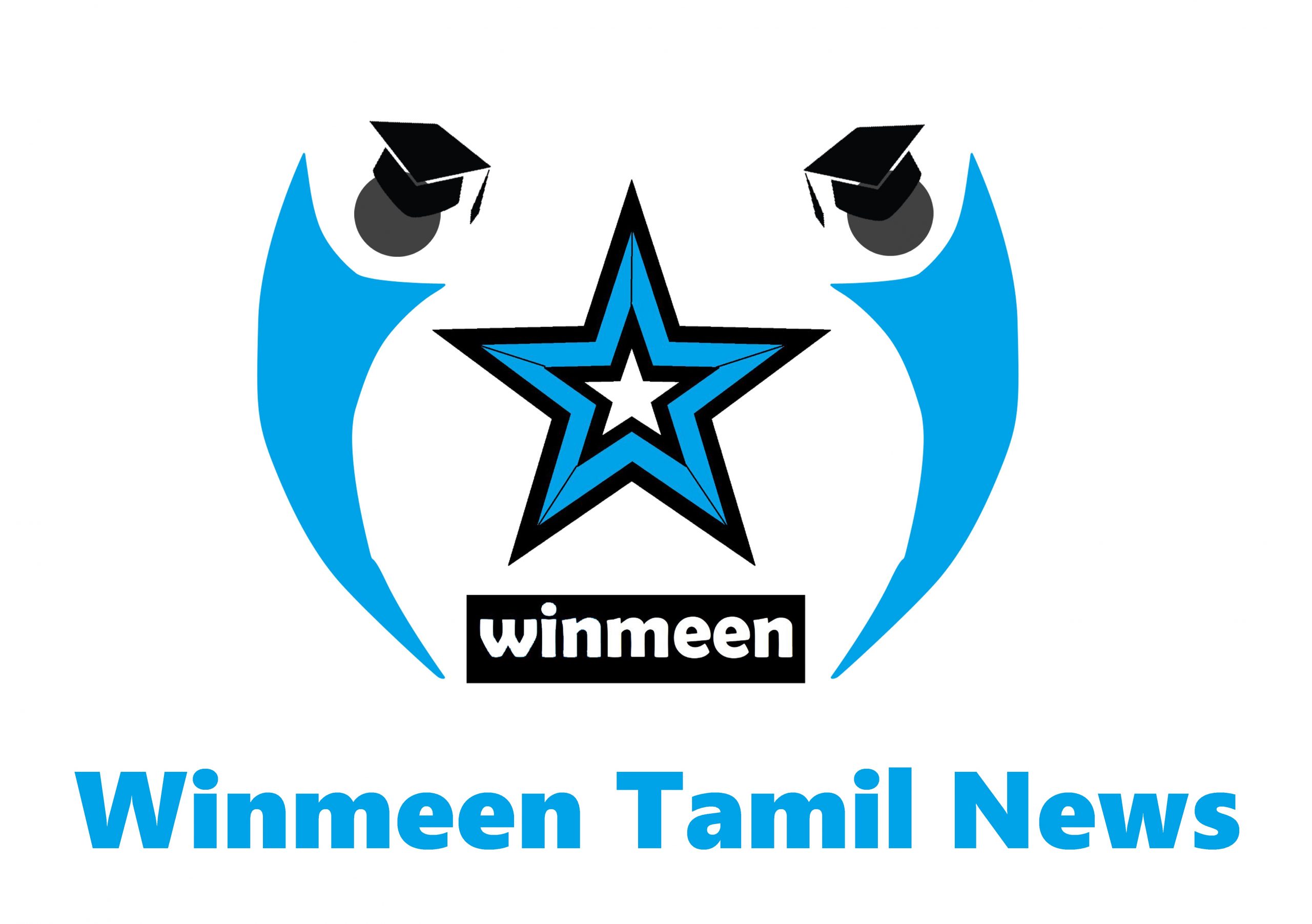உயர்கல்வி நிறுவனங்களின் மதிப்பீடு மற்றும் அங்கீகாரத்தை வலுப்படுத்துவதற்கான குழு உயர் கல்வி நிறுவனங்களின் மதிப்பீடு மற்றும் அங்கீகாரத்தை வலுப்படுத்த உயர்மட்ட குழுவை மத்திய அரசு அமைத்துள்ளது

உயர்கல்வி நிறுவனங்களின் மதிப்பீடு மற்றும் அங்கீகாரத்தை வலுப்படுத்துவதற்கான குழு
உயர் கல்வி நிறுவனங்களின் மதிப்பீடு மற்றும் அங்கீகாரத்தை வலுப்படுத்த உயர்மட்ட குழுவை மத்திய அரசு அமைத்துள்ளது.
குழுவின் உறுப்பினர்கள் யார்?
- இந்த குழுவின் தலைவர் கே ராதாகிருஷ்ணன், ஐஐடி கான்பூர் கவர்னர்கள் குழுவின் தலைவர். ஐஐடி கவுன்சில் நிலைக்குழுவின் தலைவராகவும் உள்ளார்.
- குழுவின் மற்ற உறுப்பினர்கள்:
- மிருதுல் ஹசாரிகா, துணைவேந்தர், மகாபுருஷ ஸ்ரீமந்த சங்கரதேவா விஸ்வவித்யாலயா, அசாம்
- பாரத் பாஸ்கர், பேராசிரியர், ஐஐஎம் லக்னோ மற்றும் இணைச் செயலாளர், உயர்கல்வித் துறை, கல்வி அமைச்சகம்
குழுவின் நோக்கம் என்ன?
இந்தியாவில் உள்ள உயர்கல்வி நிறுவனங்களின் மதிப்பீடு மற்றும் அங்கீகார செயல்முறைகளை வலுப்படுத்துவதை இந்த குழு நோக்கமாகக் கொண்டுள்ளது. NEP, 2020 ஆல் முன்மொழியப்பட்ட தேசிய அங்கீகார கவுன்சிலுக்கான (என்ஏசி) சாலை வரைபடத்தை உருவாக்குவதில் இது ஈடுபடும்.
உயர்கல்வி நிறுவனங்களின் தரத்தை பராமரிப்பதில் அங்கீகாரம் முக்கிய பங்கு வகிக்கிறது. இது உயர்கல்வி நிறுவனங்களின் பலம் மற்றும் பலவீனங்களை மறுஆய்வு செயல்முறை மூலம் கண்டறிய உதவுகிறது. இது அவர்களுக்கு மேலும் வளர்ச்சிக்கான ஆதாரங்களை திட்டமிடவும் ஒதுக்கவும் உதவும். நிறுவனம் வழங்கும் கல்வியின் தரம் குறித்து மாணவர்கள், முதலாளிகள் மற்றும் சமூகத்திற்கு நம்பகமான தகவல்களின் ஆதாரமாகவும் அங்கீகாரம் செயல்படுகிறது.
NAC என்றால் என்ன?
இந்திய உயர்கல்வி ஆணையத்தின் (Higher Education Commission of India HECI) 4 சுயாதீன செங்குத்துகளில் ஒன்றாக தேசிய கல்விக் கொள்கை (NEP), 2020 ஆல் தேசிய அங்கீகார கவுன்சில் (National Accreditation Council NAC) முன்மொழியப்பட்டது. தேசிய உயர்கல்வி ஒழுங்குமுறைக் குழு (NHERC), உயர் கல்வி மானியக் குழு (HEGC) மற்றும் பொதுக் கல்வி கவுன்சில் (GEC) ஆகியவை மற்ற செங்குத்துகளாகும்.
NEP, 2020, HECI இன் கீழ் நான்கு செங்குத்துகளை அமைக்க பரிந்துரைத்தது, ஒழுங்குமுறை, அங்கீகாரம், நிதி மற்றும் கல்வித் தரநிலை அமைப்பு ஆகியவற்றின் தனித்துவமான செயல்பாடுகள் தனித்தனி, சுதந்திரமான மற்றும் அதிகாரம் பெற்ற அமைப்புகளால் மேற்கொள்ளப்படும். வட்டி மோதலைக் குறைக்கவும், அதிகாரக் குவிப்பை அகற்றவும் இது தேவைப்படுகிறது.
முன்மொழியப்பட்ட NAC இன் முதன்மை செயல்பாடுகள்:
- உயர்கல்வி நிறுவனங்களின் அங்கீகாரத்தை ஒழுங்குபடுத்துதல்
- அடிப்படை விதிமுறைகள், பொது சுய-வெளிப்பாடு, நல்ல நிர்வாகம் மற்றும் விளைவுகளின் அடிப்படையில் அங்கீகாரச் செயல்பாட்டில் ஈடுபட்டுள்ள சுயாதீன நிறுவனங்களை மேற்பார்வையிடுதல் மற்றும் மேற்பார்வை செய்தல்.
- உயர்கல்வி நிறுவனங்களின் தரத்தை பராமரிப்பதற்கும் மேம்படுத்துவதற்கும் கட்டப்பட்ட அளவுகோல்களைக் குறிப்பிடும் தரப்படுத்தப்பட்ட அங்கீகாரத்தின் வலுவான அமைப்பை உருவாக்க நிறுவனங்களை அங்கீகாரம் பெற்றவர்களாக அங்கீகரிக்கவும்.
HECI இன் பிற சுயாதீன செங்குத்துகளுடன் NAC, வெளிப்படையான பொது வெளிப்பாட்டின் அடிப்படையில் செயல்படும். மனிதத் தவறுகளைக் குறைக்கவும், செயல்திறன் மற்றும் வெளிப்படைத்தன்மையை மேம்படுத்தவும் இது தொழில்நுட்பங்களைப் பயன்படுத்தும். NAC மற்றும் பிற 3 சுயாதீன செங்குத்துகள் தொடர்புடைய பகுதிகளில் உயர்நிலை நிபுணத்துவம் மற்றும் பொது சேவையின் சாதனைப் பதிவுடன் உறுப்பினர்களைக் கொண்டிருக்கும். நான்கு செங்குத்துகளுக்கு இடையிலான முரண்பாடுகள் HECI மூலம் தீர்க்கப்படும்.
Panel to Strengthen Assessment and Accreditation of Higher Educational Institutions
The Central Government has established a high-level panel to strengthen the assessment and accreditation of higher educational institutions.
Who are the members of the panel?
- The committee will be chaired by K Radhakrishnan, chairperson, Board of Governors, IIT Kanpur. He is also chairing the IIT Council Standing Committee.
- Other members of the committee are:
- Mridul Hazarika, vice-chancellor, Mahapurusha Srimanta Sankaradeva Viswavidyalaya, Assam
- Bharat Bhasker, Professor, IIM Lucknow and the Joint Secretary, department of higher education, ministry of education
What is the purpose of the panel?
The Committee aims to strengthen the assessment and accreditation processes of Higher Education Institutes in India. It will also be involved in creating a roadmap for the National Accreditation Council (NAC) that was proposed by the NEP, 2020.
Accreditation plays an important role in maintaining quality of higher education institutions. It enables higher education institutions identify their strengths and weaknesses through a review process. This will help them plan and allocate resources for further development. Accreditation also acts as a source of reliable information for students, employers and society about the quality of education provided by the institution.
What is NAC?
The National Accreditation Council (NAC) was proposed by the National Education Policy (NEP), 2020 as one of the 4 independent verticals of the Higher Education Commission of India (HECI). The other verticals are National Higher Education Regulatory Council (NHERC), Higher Education Grants Council (HEGC) and General Education Council (GEC).
The NEP, 2020 recommended setting up four verticals under the HECI to ensure that the distinct functions of regulation, accreditation, funding and academic standard setting will be undertaken by separate, independent and empowered bodies. This is required to minimise conflict of interest and remove concentration of power.
The primary functions of the proposed NAC are:
- Regulation of accreditation of higher education institutes
- Oversee and supervise independent institutions involved in the accreditation process based on basic norms, public self-disclosure, good governance and outcomes.
- Recognize institutions as accreditors to create a robust system of graded accreditation, which will specify phased benchmarks for maintaining and improving the quality of higher education institutions.
The NAC, along with other independent verticals of HECI, will function based on transparent public disclosure. It will use technologies to reduce human error, improve efficiency and transparency. The NAC and other 3 independent verticals will have members with high-level of expertise in relevant areas as well as a track record of public service. The disputes between the four verticals will be resolved by the HECI.

